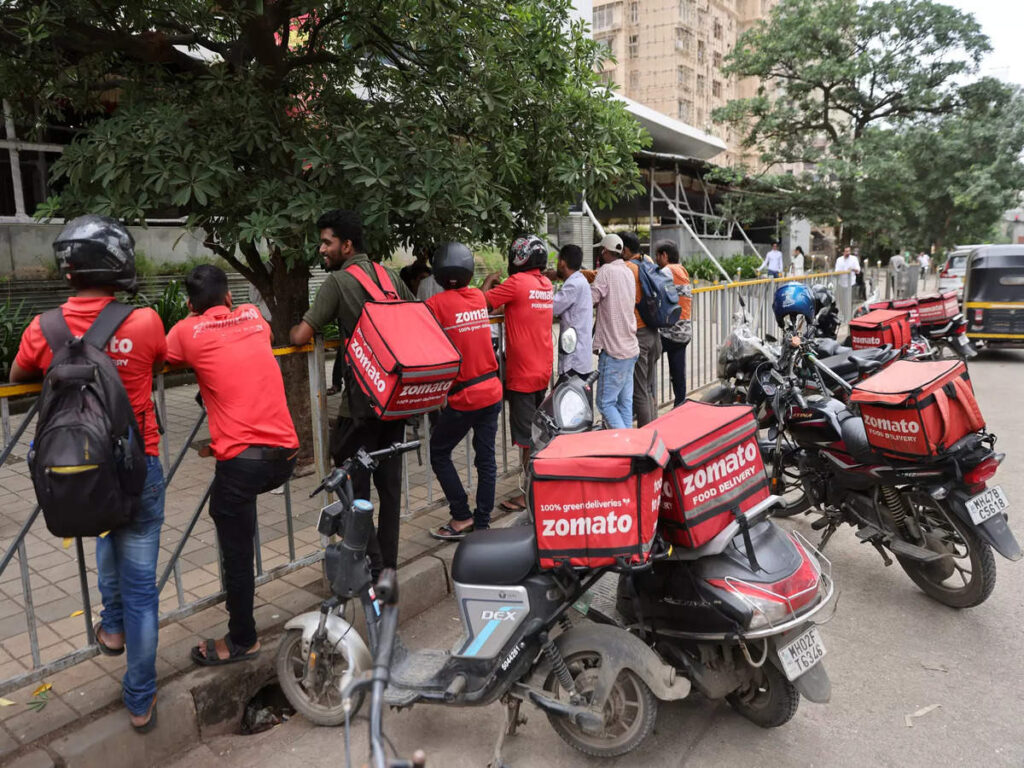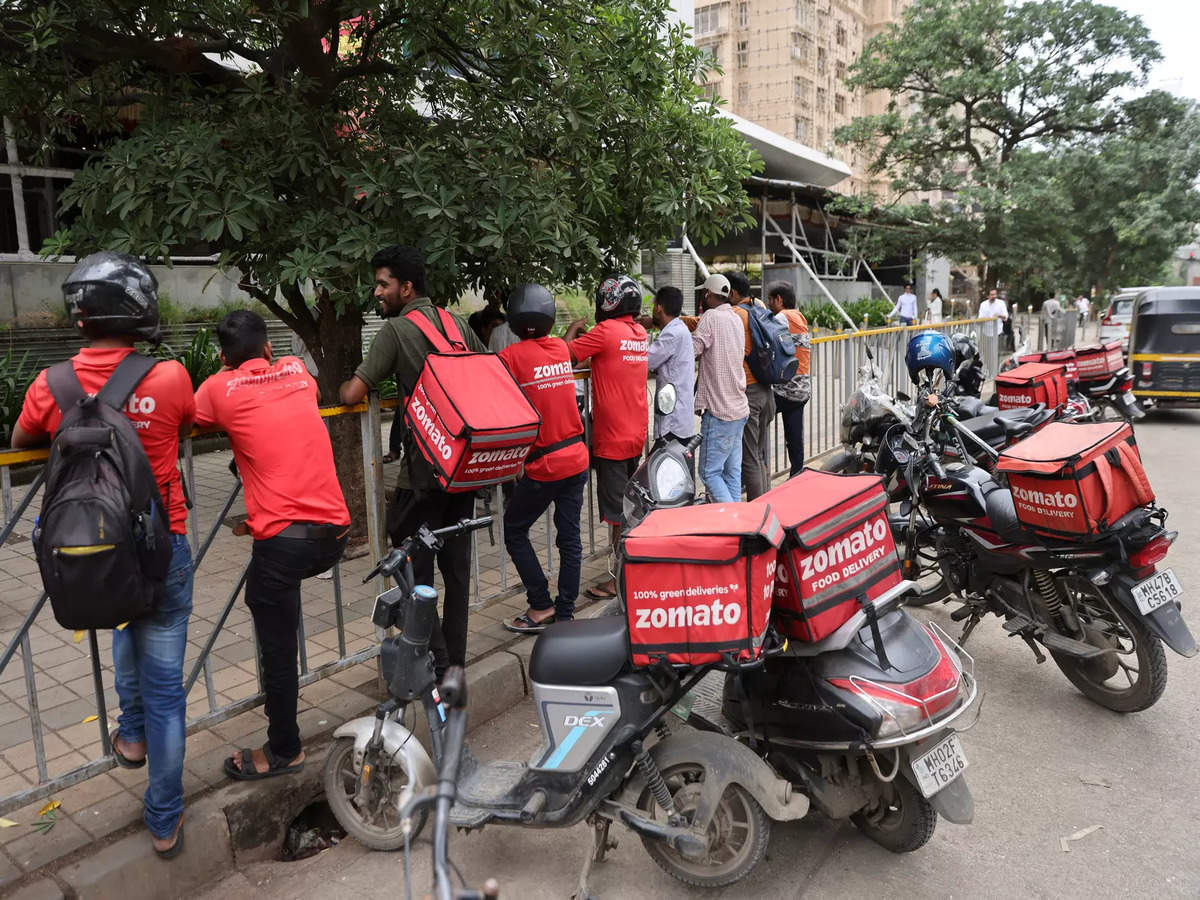Table of Contents
The article published in the editorial section of The Hindu Editorial highlights the struggles of gig workers, particularly migrant workers, in Bengaluru’s rapidly expanding gig economy. They focus on the exploitation these workers face, the disparity between local and migrant workers, and the potential impact of a local reservation bill aimed at prioritizing jobs for locals.
Background Information
Migrant Workers in Bengaluru’s Gig Economy
Who are they? Many gig workers in Bengaluru, including delivery personnel and service providers, are migrants who have come to the city in search of better opportunities. They come from various states like Andhra Pradesh, Tamil Nadu, West Bengal, Bihar, and the northeastern regions of India. They work for app-based platforms like Uber, Ola, Swiggy, Zomato, and other service platforms.
Challenges faced by migrants: Migrants often lack social networks and knowledge of the local language and culture. This makes them more vulnerable to exploitation. For instance, while local workers may speak up against unfair pay cuts or other mistreatment, migrant workers are more likely to remain silent due to fear of losing their jobs. They don’t have the same safety nets that locals do, such as family support or access to better job opportunities.
Working conditions: Migrants often work full-time for these gig platforms because they don’t have many alternatives. On the other hand, local workers tend to work part-time, supplementing their income with other jobs. Migrants are also more likely to take on risky jobs with less stable incomes because they don’t have the connections or opportunities that locals have. For drivers associated with platforms like Uber or Ola, the number of inter-state migrants is relatively low, making up only about 5-10%.However, rental schemes offered by ride-hailing platforms (where drivers can rent cars rather than own them) attract more migrant workers because they require less financial investment and come with lower risks.
The Local Reservation Bil
The Karnataka government proposed a local reservation bill, which would give preference to locals for jobs. This bill has been controversial, as it could negatively impact migrants who rely on these jobs for their livelihood.
The bill is unlikely to have a direct impact on gig workers, who are not considered traditional employees. However, it could reduce opportunities for migrants in formal jobs, pushing them further into the informal gig sector, where exploitation is already rampant.
Critics of the bill argue that it distracts from the real issue, which is the exploitation of workers. They suggest that focusing on protecting and improving working conditions for all workers, including migrants, would be more beneficial than prioritizing locals in jobs.

Article Explapanation.
Padma and Pasha’s story.
Padma, originally from Sikkim, moved to Visakhapatnam and Bengaluru to work as a beauty service provider for a home delivery service company. She charges a 30% commission but receives a 30% pay every three days. Padma’s sister also joins the company. The company offers training for new services and many migrants from different Indian states participate.
Pasha, a delivery worker from Bengaluru, transitioned from a full-time to a part-time job after finding a second job as a security agent. He notes the risk of traffic and pollution, but the job pays well. However, due to changing payment structures, Pasha had to find a more stable second job.
Plight of workers
The article discusses the differences between local and migrant workers in the gig economy. Local workers often work part-time for gig platforms, while migrant workers tend to work full-time due to a lack of better options. Migrant workers face more challenges, such as being unfamiliar with the local language and culture and lacking local networks, making them more vulnerable to exploitation. Local workers are more likely to push back against unfair treatment, while migrants remain silent out of fear of losing their jobs.
Companies tend to exploit migrant workers more due to their lack of local support and less willingness to stand up against unfair practices. Even among gig workers, migrants face tougher conditions due to their lack of rights and protections. The article also discusses the potential impact of a local reservation bill, which would give preference to locals in jobs. While gig workers are not considered traditional employees, the bill could worsen the situation for migrant workers in general.
The article criticizes the idea of a local reservation bill as it diverts attention from the larger issue of worker exploitation. Some argue that locals avoid low-paying gig jobs due to their local networks and access to better opportunities. Social security schemes that require proof of local residency further disadvantage migrants, who continue to move to cities for work despite these challenges.
In Conclusion, the articles highlight the plight of migrant workers in Bengaluru’s gig economy, who often face exploitation due to a lack of local support. They suggest that instead of dividing locals and migrants, the focus should be on ensuring fair treatment and protections for all workers, especially those most vulnerable to exploitation in the gig economy.
Join our telegram channel for regular updates of The Hindu Epaper Editorial Explanation-https://t.me/Thehindueditorialexplanation
The Hindu Epaper Editorial Explanation given by Hello Student is only a supplementary reading to the original article to make things easier for the students.
In conclusion, preparing for exams in India can be a daunting task, but with the right strategies and resources, success is within reach. Remember, consistent study habits, effective time management, and a positive mindset are key to overcoming any academic challenge. Utilize the tips and techniques shared in this post to enhance your preparation and boost your confidence. Stay focused, stay motivated, and don’t forget to take care of your well-being. With dedication and perseverance, you can achieve your academic goals and pave the way for a bright future. Good luck!
The Editorial Page of The Hindu is an essential reading for all the students aspiring for UPSC, SSC, PCS, Judiciary etc or any other competitive government exams.
This may also be useful for exams like CUET UG and CUET PG, GATE, GMAT, GRE AND CAT
To read this article in Hindi –https://bhaarat.hellostudent.co.in/https:
//hellostudent.co.in/mpox-virus-the-hindu-editorial-explanation/
Read More- https://hellostudent.co.in/mpox-virus-the-hindu-editorial-explanation/

